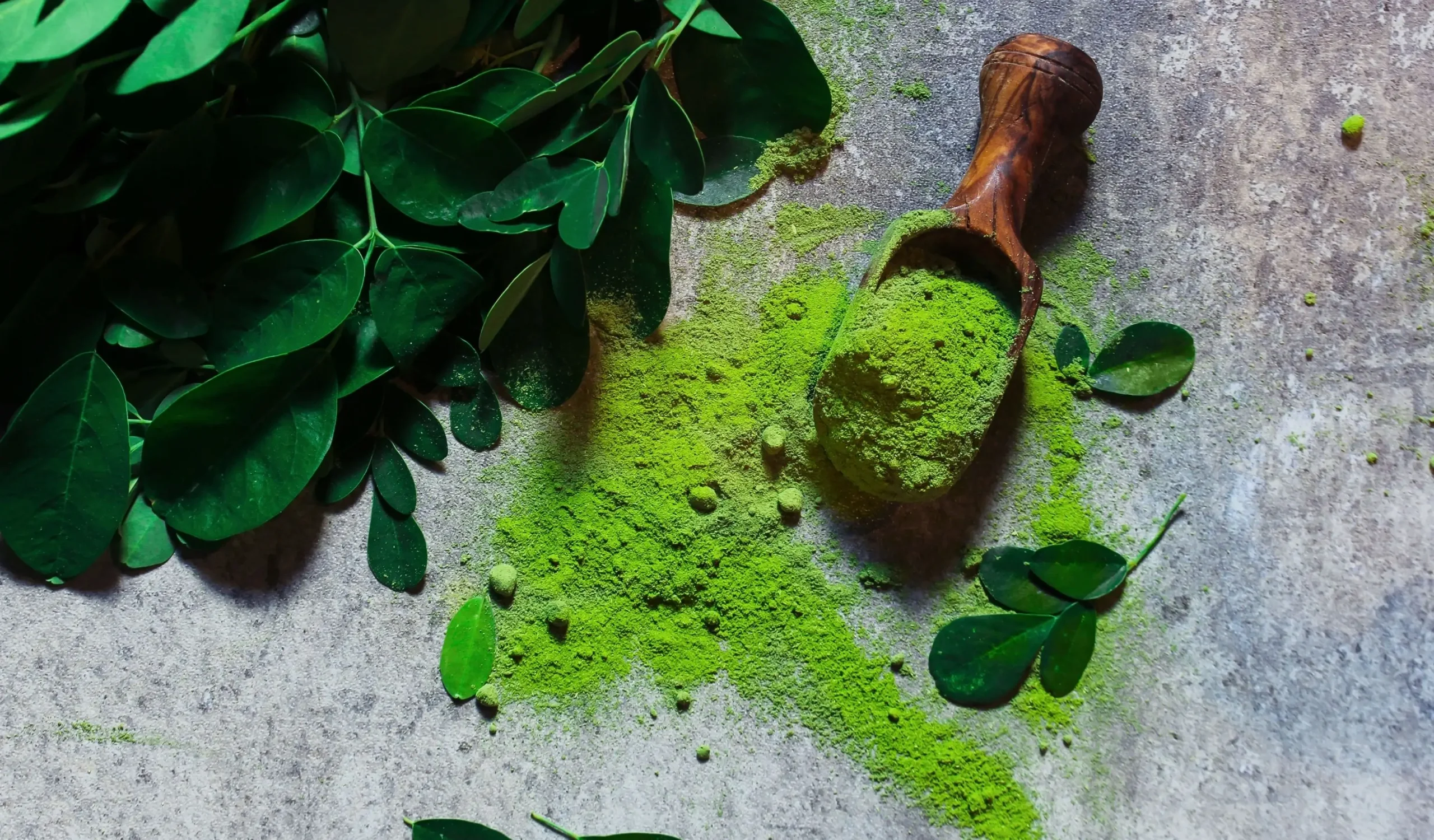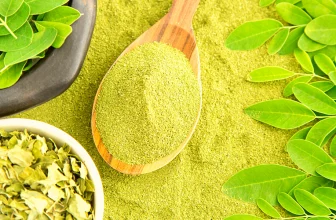Moringa: A Review on Nutritive Importance and its Medicinal Application

Moringa, that’s what you need for your family!
Moringa oleifera Lam. or commonly known as the Moringa tree has been used for thousands of years in folk medicine. It is one of the biggest and most verdant Moringa trees, grows in a tropical and dry climate, as it has no specific seasonality for its growth and reproduction.
The genus Moringa has been long involved in the traditional medicine of various countries, and many studies have revealed various pharmacological effects of this plant. These plants have been investigated for their antioxidant, anti-inflammatory, antipyretic, analgesic, antidiabetic, and many other properties.
If you’ve never heard of Moringa before, that’s not surprising. It’s a relatively new product to hit the country. Nonetheless, its popularity is growing like crazy as more people discover it.
Origin and Distribution
Moringa species are all native to Asia, from where they have been propagated across many parts of the world especially more seen in warm countries, such as Malaysia and other tropical countries.
This tree can tolerate temperatures from 19oC to 28oC, has a height from 5 to 10 m, and can be cultured throughout the plains.
Although the Moringa oleifera is known as the “Miracle Tree,” it has many other names in different countries. This tree is known as Marango or Marungay or Malungay or Malunggay in the Philippines, Khao-mane in Thailand, Mlonge in Africa, Ben oil tree or Benzoil tree in West Indies, Moringa Tree or Drumstick tree or Horseradish tree in English.
The Moringa oleifera plant is a fast-growing perennial plant that produces pods with green seeds that are harvested for a variety of uses including livestock feed (leaves), cosmetics (oil), water purification (seed powder).
Soil and Environmental Requirements for Moringa
The moringa tree has adapted to a wide range of soil and environmental conditions. It tolerates drought and poor soils, but it does best on deep well-drained, loamy soils with a pH of 5.5-7.5 and high organic content.
It will grow in the tropics and subtropics from sea level up to an altitude of 1300 m, but it grows best at low altitudes where temperatures are relatively high (average 27°C) and rainfall is consistent (1000-1500 mm).
Moringa prefers areas where there are 2 or 3 months of lower temperatures (10-20°C) followed by hot weather (30°C). This is because flowering is triggered by lower temperatures, so trees grown in consistently hot climates may not flower. Moringa can tolerate some frost damage, but if the temperature falls below 0°C for more than a few hours all above-ground parts are killed.
Phytoconstituents of Oleifera
The phytoconstituents of M. oleifera consist of flavonoids, alkaloids, saponins, and terpenoids. The presence of these four groups of phytochemicals confirms the traditional uses of the plant as an analgesic, antipyretic, anti-hyperglycemic, antihypertensive, and diuretic.
Flavonoids are a very large group of phytochemical compounds found in almost all plants. Flavonoids are divided into six subclasses based on the number and arrangement of phenolic rings.
Moringa Oleifera is a popular herbal supplement that has been used in traditional medicine systems for hundreds if not thousands of years. It is praised for its many purported health benefits.
Pharmacological Aspects of Moringa Oleifera (Moringaceae)
The pharmacological activities reported for different parts of this plant include anti-inflammatory, analgesic, antidiabetic, cardioprotective and neuroprotective, antimicrobial, and anticancer activities. Various phytochemicals including glycosides, flavonoids, polyphenols, proteins, and steroids have been isolated from M. oleifera.
These phytochemicals have been shown to be responsible for the biological activities of the plant. Several studies have investigated the various biological activities of extracts and isolated compounds from this plant. However, there is a need for further research to determine their safety and efficacy as drugs for the prevention or treatment of human diseases.
The drumstick tree has been used in Ayurvedic medicine for centuries and has recently gained popularity in the West as a source of nutrition and natural remedies.
The leaves are an excellent source of vitamins A and C, calcium, potassium, and protein. The seed oil contains behenic acid, which has potential medicinal applications. The flowers have anti-inflammatory properties, while the fruits and roots are used as a laxative.
The tree is also used to combat malnutrition in developing countries because it is rich in protein, vitamins, beta-carotene, amino acids, and various phenolics. Moringa leaves have been found to contain significant amounts of vitamin C (120 mg/100g), vitamin A (690 IU/100g), and protein (6.7 g/100g).
In developing countries where malnutrition prevails, it may be an answer to fighting hunger and nutritional deficiencies among children. Because it is rich in nutrients and can withstand drought conditions better than other crops, this plant provides a quality food source, especially for people living under harsh conditions.
Anti-microbial Activity of Moringa Oleifera Leaf Extract, Bark Extract, and Root Extract
Moringa oleifera (M. oleifera), a tree cultivated throughout the tropics, is known for its nutritional, medicinal, and environmental benefits. We investigated the anti-microbial activity of the plant extracts on different microorganisms and compared it with that of antibiotics. The antibacterial effects of methanolic (MeOH) and hexane (Hex) extracts were tested against five different bacterial species using the agar well diffusion method, while that of chloroform (CHCl3) extract was tested against fungi using the agar overlay method. Minimum inhibitory concentration (MIC) was determined by the broth microdilution method.
The results showed that Moringa oleifera have anti-microbial activity against all microorganisms tested when compared with antibiotics used in this study. The mean diameter of the inhibition zone ranged from 9 to 17 mm at 3 mg/mL for bacteria and 6 to 13 mm at 2 mg/mL for fungi. The MIC values ranged from 0.15 to 1 mg/mL for bacteria and 0.5 to 4 mg/mL for fungi except Candida albicans which had 8 mg/mL value. This study revealed that M. oleifera leaves possess potent antimicrobial activity.
Anti-inflammatory Activity
Inflammation is a critical aspect of the immune system. It is the body’s first line of defense against disease, bacteria, and viruses as well as an immune response to damaged or infected tissue. Inflammation is a complex process that involves the release of certain chemicals which in turn leads to blood flow increase and induces fever.
It works like this: When you get a cut or a wound, your immune system sends white blood cells to the injured area to fight infection and repair the area. The increased number of white blood cells in that area creates swelling as they accumulate. This accumulation results in a color change, redness, and heat. The swelling also reduces movement and relieves pain by blocking nerve endings around that area. In short, your body intentionally causes inflammation to help you heal faster.
But sometimes that process can go awry due to many factors like diet, genetics, allergies, hormones, and more. Chronic inflammation can cause serious problems like autoimmune disorders and more — which leads to diseases ranging from heart disease and diabetes to Alzheimer’s disease (AD). It is believed that AD is caused by chronic inflammation in brain tissues.
Many studies show that Moringa has powerful anti-inflammatory properties because it contains a variety of anti-inflammatory compounds, including:
Quercetin: Quercetin is a flavonoid found in many plants and foods. It has been studied for its powerful antioxidant and anti-inflammatory effects.
Chlorogenic acid: Chlorogenic acid is one of the most abundant antioxidants in Moringa leaves. Numerous studies show that it can reduce inflammation and protect against chronic diseases in humans.
Caffeoylquinic acids (CQAs): These compounds are plant metabolites with strong antioxidant and anti-inflammatory properties, which may help prevent the growth of certain cancers (1).
Zeatin: Zeatin is one of several plant hormones called cytokinins. It has powerful antioxidant effects that can protect against oxidative damage, which promotes aging and disease (2Trusted Source).
Rutin: Rutin is a flavonol glycoside that occurs naturally in some plants, including Moringa. Like other flavonoids, rutin has potent anti-inflammatory properties (3Trusted Source).
today’s herbal tea. #moringa
— Choc @English learner (@working_on_eigo) March 20, 2022
i need to keep dietary balance. because i ate junk foods yesterday. #カフェインレス生活 pic.twitter.com/CC5gAC5dU2
Moringa dried roots and seeds pic.twitter.com/XlwmkBt5qc
— Hement Raj Kaphale (@HKaphale) March 25, 2022
Immunomodulatory Activity
The immune system is a complex and multifaceted system, continuously interacting with the environment. Many factors can influence the immune response. Modifying these factors, either by diet or other interventions, may be beneficial to the immune system.
In this issue of the journal, researchers show that Moringa oleifera Lam (Moringaceae), a plant commonly used in traditional medicine in Africa and Asia, has immunomodulatory effects.
Hepatoprotective Activity
The liver is a vital organ of the body and is responsible for many important and crucial functions. It helps to detoxify the blood and remove harmful substances from it, produces bile which aids in digestion and helps in metabolizing the food. Any damage to the liver can therefore lead to life-threatening conditions. This damage can be caused by viral infections such as hepatitis A,B and C or by consumption of toxic substances such as alcohol or drugs.
Many plants have been used since ancient times for treatment of liver disorders due to their hepatoprotective properties. Moringa oleifera is one such plant which has been widely used for treating liver diseases worldwide. A number of studies have established the beneficial effects of moringa on the liver. In one study, the leaves of Moringa oleifera were given to sheep along with their feed for 30 days. The results showed that there was an increase in total proteins and albumin levels in the serum of these animals which indicates that moringa leaves are able to protect the liver from toxins.
Anti-oxidant Activity of Various Parts of Moringa Oleifera (Moringaceae) Plant
Moringa is an excellent source of Vitamin C. Vitamin C is a natural antioxidant and helps in the removal of free radicals from the body. Free radicals are those molecules responsible for aging, weakened immune system and degenerative diseases.
To prevent all these problems, it is essential to take a vitamin C supplement because our body cannot manufacture it on its own, it has to be supplied through our diet or supplements. Moringa contains 17 times more vitamin C than oranges and 25 times more than apples. It also contains vitamin E, which is also an antioxidant.
Economic Importance of Moringa Oleifera
There is increasing interest in the economic importance of Moringa oleifera, a highly valued plant that is native to the sub-Himalayan areas of India, Pakistan, Bangladesh and Afghanistan, and is widely cultivated in the tropics.
Foods: Moringa is cultivated for its young seed pods, leaves, flowers and roots. The mature seed can also be used as a food source. The immature green seed pod, called the drumstick, is commonly consumed in India. It has a light asparagus flavor. The flowers are edible when cooked, and are said to taste like mushrooms.
Medicine: The seeds, bark, and roots of moringa have been used for centuries in Ayurvedic medicine, the traditional medicine of India. Moringa seeds contain benzyl isothiocyanate (BITC), which has been shown to have anti-tumor properties. Moringa leaf extracts are also being investigated as treatments for high blood pressure, diabetes, and liver disease.
Industrial: Moringa seeds contain 30 to 40 percent oil that has many industrial uses including being a lubricant and base for perfumes and cosmetics. Fresh seeds can be used on their own or as bio-diesel fuel in engines.
Water purification: The seeds of moringa can purify water by removing turbidity and reducing chemical contaminants such as iron, aluminum, and manganese.



